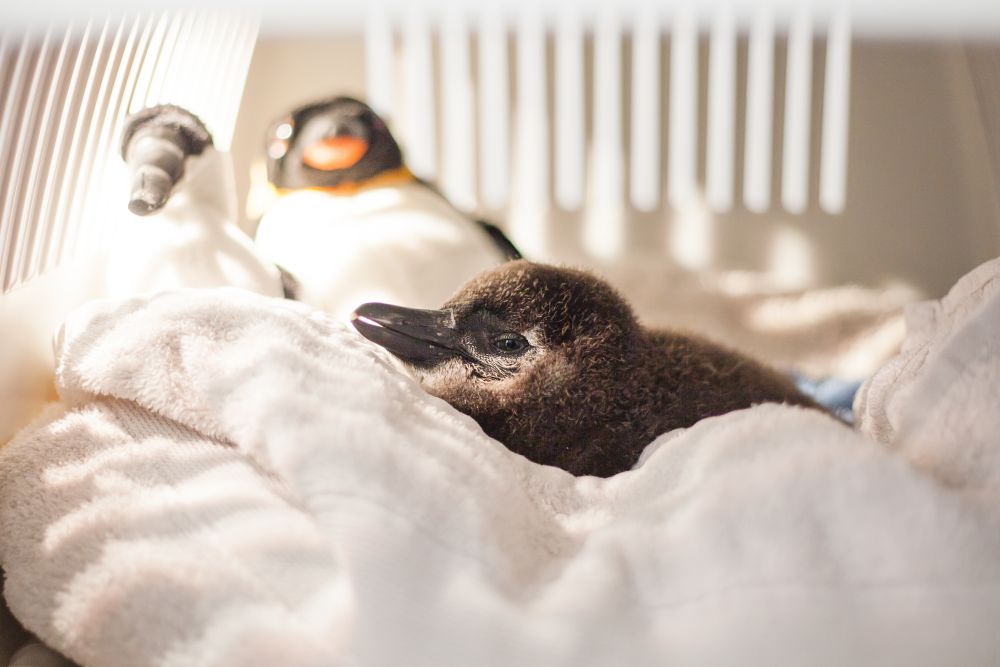A sickly African penguin chick has been nursed back to health with fish soup by dedicated zoo keepers.
Staff at Living Coasts, Torquay’s coastal zoo and aquarium, have been feeding the chick every 3 hours from 7.30 in the morning to 7.30 at night. The only thing on the menu is fish; at first this was blended into a liquid soup, but the chick has now moved on to solids.
The chick hatched in February to penguin parents Eddie and Diamond. Living Coasts Curator Clare Rugg explained: “It was sickly, so we decided to hand rear. We don’t know at this stage what caused the illness, but it seems to have recovered thanks to the hard work of the keeping team.”
Dad Eddie (aged 17) and Mum Diamond (6) are first time parents and both important for the gene pool in managed African penguins, which means the chick is a new blood line for the zoo and important for the future of the species and the breeding programme.
The extra workload of caring for the little bird has been divided between three – Head Keeper Lois Rowell, Senior Keeper Libor Mach and Keeper Jason Keller. The chick lives in the zoo’s care building in a brooder box, which provides steady warmth. Its constant companions are several cuddly penguin toys.
At first it was given a formula of skinned herring fillets and supplements blended with water, delivered gently through a syringe. It was then weaned onto skinned sprat fillets, sprat slices and now small whole sprats and sprat slices, offered by tweezers. “We stimulate the chick by wiggling our fingers to recreate the natural feeding behaviour of begging,” explains Jason.
And it’s not just a matter of feeding it as much as you can. Jason: “We feed it no more than 10% of its morning body weight per feed five times a day.” Everything is written down and recorded.
Although it’s still young, the chick can be inquisitive and follow the moving fingers of a keeper. It also loves to cuddle into its penguin toys. Staff suspect it will turn into a character when it’s older and mixed back into the colony. Before that, however, it will go outside into a crèche at about two months; it’s important that the youngster gets some English Riviera sunshine when it can.
Are there any tricks to rearing a penguin? Clare: “Patience, dedication – and not being put off by the smell of fish…!”
Living Coasts is home to 32 female African penguins and 31 males, plus the chick. Penguins might be able to tell, but keeping staff have to rely on a spot of science to distinguish boys from girls: “We will sex the chick and give it a name once a DNA sample can be taken,” says Jason. “We have to wait until it has moulted out of its baby down feathers around the age of 10 to 12 weeks.” For more information go to www.livingcoasts.org.uk or ring 01803 202470.
You can join us on our social media pages, follow us on Facebook or Twitter and keep up to date with whats going on in South Devon.
Got a news story, blog or press release that you’d like to share or want to advertise with us? Contact us



























